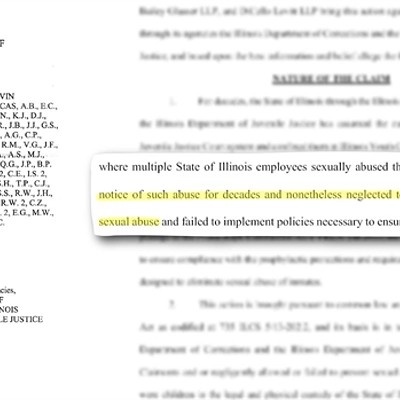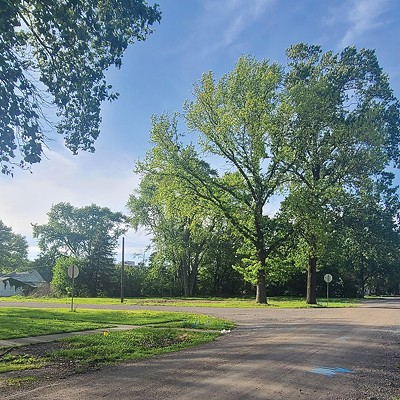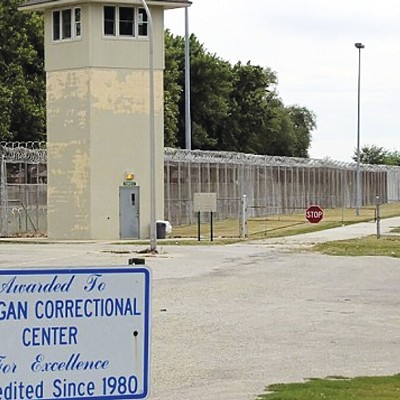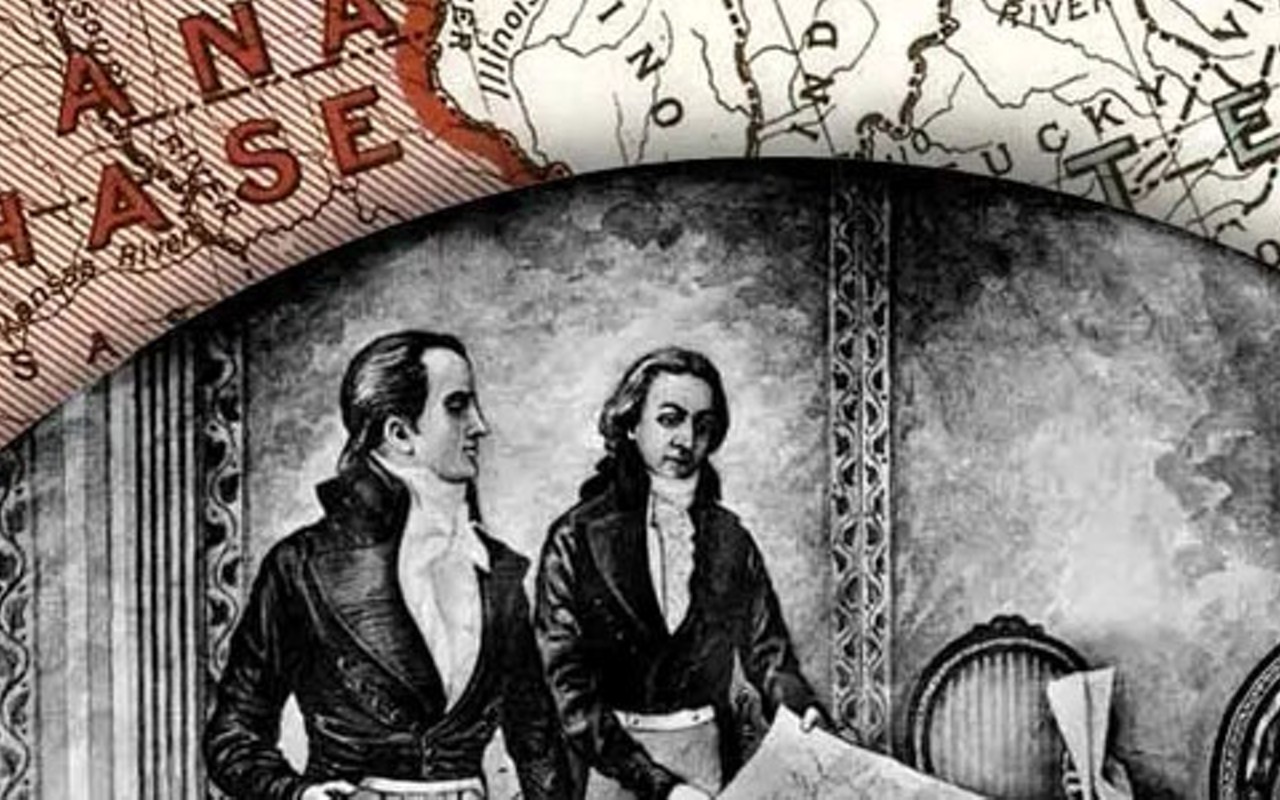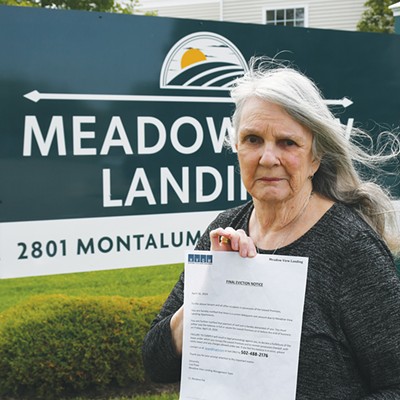An Illinois Commerce Commission staff member's blistering criticism and recommended denial of Navigator CO2's proposed carbon-dioxide pipeline has encouraged opponents of the project.
Navigator's request for ICC approval for the Navigator Heartland Greenway pipeline "is not a benefit to the citizens of Illinois nor in the public interest," ICC case manager Mark Maple said in testimony filed June 15.
Opponents also hope ICC officials are swayed by a Sangamon County official's statements that Navigator would leave emergency responders ill-prepared for a pipeline rupture.
Kathleen Campbell, a Glenarm resident and vice president of Citizens Against the Heartland Greenway Pipeline, said Maple's testimony was "much stronger" than opponents expected.
"I think the tides are turning against Navigator," she said.
Navigator's case in front of the ICC is part of the company's $3.4 billion plan to transport liquified and pressurized CO2 1,350 miles from ethanol and fertilizer plants in Iowa, Minnesota, Nebraska, South Dakota and one ethanol plant in Galva, Illinois, and inject and "sequester" the material more than a mile underground in the Mount Simon sandstone formation in rural northern Christian and eastern Montgomery counties.
Written testimony in the case will be considered before the ICC conducts public hearings Oct. 17-20. An expected decision on Navigator's pipeline plan is scheduled for early 2024.
The Sangamon County Board has scheduled its own public hearing on the proposed project at 5:30 p.m. July 17 at the BOS Center in Springfield.
Navigator's plan is widely supported by the ethanol industry and labor unions as a way of reducing greenhouse gas emissions while supporting jobs and rural economies.
But Maple said Navigator's proposal to construct the longest CO2 pipeline in the world is "inconsistent with the legislative purpose" of the 2011 state law governing CO2 pipelines because that law was designed to promote and regulate pipelines that transport and sequester carbon dioxide from coal-fired power plant emissions.
He said the plan also should be turned down because the company's application wasn't filed properly, its emergency-response plan is inadequate and Navigator doesn't have a sequestration site in place.
Navigator apparently has obtained necessary land rights to construct sequestration facilities, Maple said. But he said, "Without a sequestration facility in place and the end point being uncertain, the entire route remains in flux, and consequently, in my opinion, is not a benefit to the citizens of Illinois nor in the public interest."
Navigator said in a statement to Illinois Times that the company disagrees with Maple's "misrepresentation" regarding the status of the sequestration facilities.
"Permitting of sequestration and the transportation portion of the project are done concurrently, not subsequently – a process that is not unlike other large infrastructure development projects," Navigator said.
Maple said Navigator, which filed its first application in July 2022 and a modified application in February 2023, has negotiated voluntary pipeline easements from only 13.4% of landowners along the route. In Sangamon County, the rate was 5.2%, as of June.
That "extraordinarily low success rate" is a "strong indication of the unpopularity of the project," Maple said.
If landowner opposition continues, he said Navigator would have to use eminent domain, allowed if the company wins ICC approval, to involuntarily acquire land for an "overwhelming majority" of the project.
Navigator has said it wants to avoid eminent domain whenever possible and continues to work on securing voluntary easements.
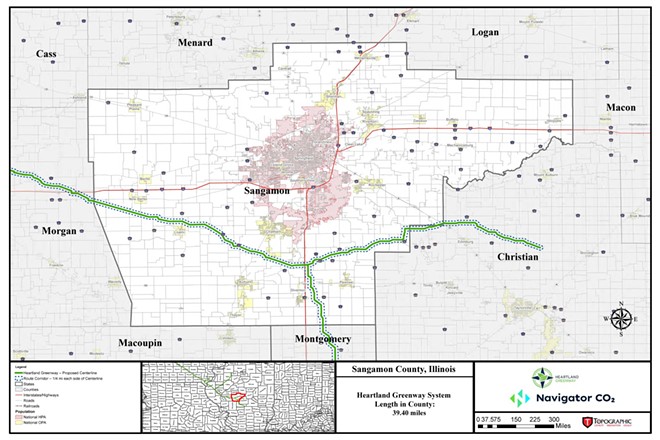
Bill Lee, director of Sangamon County's Office of Emergency Management, told the ICC in testimony that a pipeline rupture releasing a ground-hugging plume of CO2 extending for miles could suffocate people within minutes and cause gasoline-powered engines to stall.
"My concerns are that the pipeline is far too close to the populated areas of Sangamon County," Lee said.

Since the pipeline route crosses under and hugs Interstate 55 in Sangamon County, Lee said a rupture could lead to a vehicle pileup on I-55 similar to the one after the May 1 dust storm that involved 72 vehicles, killed seven people and injured about 30 others.
"In the event vehicles became inoperable while driving through the carbon-dioxide plume after a pipeline rupture, a similar traffic disaster could result, which would require a large number of electric EMS vehicles to respond to the situation," Lee said. "Over 30 ambulances were required on May 1."
Vidal Rosa, senior vice president of a company affiliated with Navigator, testified in February that Navigator is developing a plan "to address potential risks along the pipeline" that will "meet or exceed" current federal regulations.
Maple said federal officials have acknowledged current regulations are inadequate, and those officials are updating the rules.
Lee said Navigator told Sangamon County officials that the company "has not developed a budget for providing equipment to any individual government unit or to all government units along the pipeline route in aggregate."
Navigator said in a statement the company's work so far with emergency medical service providers is "just the first step ... We look forward to continue working with first responders to ensure they have the information and equipment they need to perform their job."



